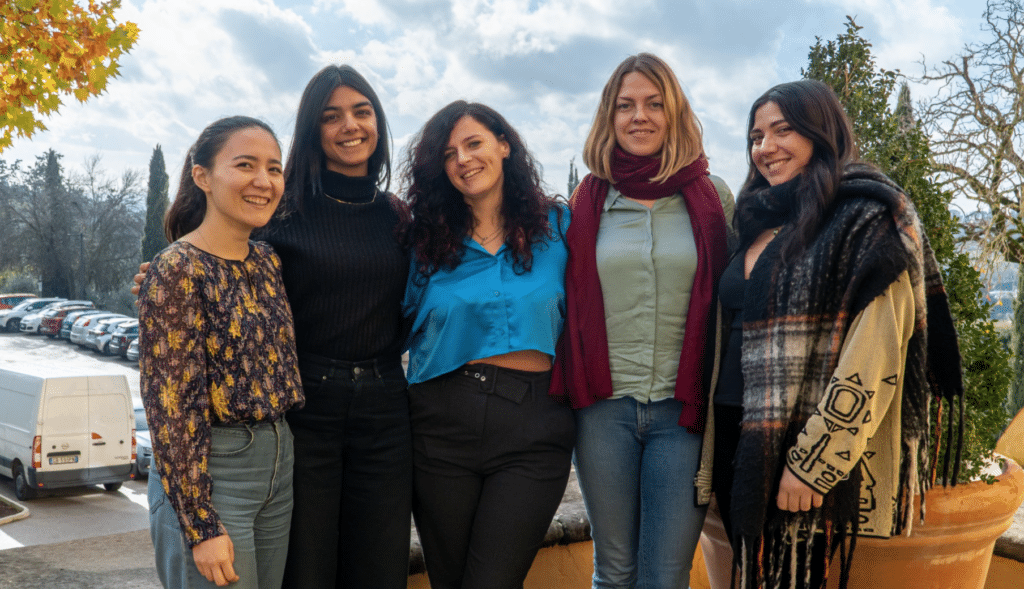Women in (FSR) Climate
This is the second installment of the Topic of the Month: FSR Women in action
In 2023 two large projects took off at FSR Climate: LIFE COASE (Collaborative Observatory for Assessment of the EU ETS) and CAPABLE (Climate Policy Acceptability Economic Framework). The two projects offer a scoping study of effective climate policy systems, covering stakeholders ranging from local policymakers to international observatories, areas from environmental damage to emissions, and mechanisms from public perceptions to transboundary regulations.
The FSR Climate team spans a wide range of experience in terms of methodologies, contexts, and focus areas: policy advice, the European Parliament, modelling, emissions trading, climate policy acceptability, corporate sustainability, and education. And women are highly represented!
LIFE COASE
LIFE COASE is a project co-funded by the EU Life Programme of the European Commission. The project aims at establishing an observatory for assessing the European Union Emissions Trading System (EU ETS). The collaborative observatory will offer a reference source of knowledge for policymakers and researchers and pave the way for future research and policies on emissions trading. The ultimate goal of LIFE COASE is to support EU and Member State policymakers in the implementation and development of the EU ETS, including its integration with other emissions trading systems. It also aims at creating lasting cooperation between policymakers, academia and other stakeholders and raise public awareness in the field of emissions trading.
The team conducting the project includes Lea Heinrich and Marie Raude, both of whom joined the FSR in April 2023 as project associate and research associate, respectively. Lea holds a Master’s degree in Political Science from the Université Libre de Bruxelles and a Bachelor’s degree in European Studies from Maastricht University. Before joining FSR Climate, she worked in Brussels as a Policy Advisor at the European Association of Services of General Interest SGI Europe, representing German public employers and utilities. Before that, she gained professional experience in the European Parliament and policy consultancies. Following the European Green Deal from different perspectives motivated her to join the climate team at the FSR.
Marie holds a MSc in Environmental, Energy and Transport Economics from the Paris-Saclay University and a BSc in Economics and Business from the Erasmus University of Rotterdam, during which she also followed a course in Sustainable Development at the Institute of Environmental Science at Leiden University. She is a PhD candidate in Climate Economics at the Climate Economics Chair and the Paris Nanterre University in France. Her thesis topic focuses on analysing hedging behaviour of market players in the EU ETS. The goal is to understand the relationships between different actors in the EU ETS and how they impact the functioning of the system. Research topics of interest include network analysis of carbon permit transactions, identifying different firm behaviour using latent profile analysis and emission market modelling incorporating financial firms and hedging.
Since April, LIFE COASE has reached multiple milestones. One significant aspect of the project involves improving the accessibility and quality of the data related to the EU ETS. In this regard, the team worked on updating the database to identify firms participating in the system. As part of building the observatory, key indicators to track during the project years were also defined following a dedicated workshop involving members of the scientific community. One academic conference and two workshops were successfully organised: a conference on ex-post assessments of emissions trading systems, a workshop focusing on comparing macro-economic models for ex-ante assessment of ETSs and a technical workshop discussing different impact indicators for measuring the environmental and economic effects of ETSs. Those events helped to identify challenges currently faced by experts assessing the systems and the potential research gaps that still need to be addressed. More importantly, it also contributed to strengthening the international network of researchers working on these topics. A yearly culminating point of the project is the Net Zero Carbon Market Policy Dialogue (NZCMPD) organised in September, which brings together researchers and regulators of major emission trading systems. For this year’s edition, the focus was put on competitiveness effects, carbon leakage, distributional effects and social implications of emissions trading. In terms of dissemination, to make knowledge about emissions trading systems more accessible, we have collaborated with multiple external experts to publish blogposts and podcasts exploring topics related to emissions trading.
CAPABLE
CAPABLE (ClimAte Policy AcceptaBiLity Economic framework) is a Horizon project that aims to develop empirical methodological tools to address climate policy evaluation, by integrating economic and social perspectives. The goal of the project is to provide recommendations for the design of socially and economically acceptable climate policy measures from 2030 and beyond.
Three women at FSR are involved in the project. Alessia Casamassima is a Research Associate at the Florence School of Regulation (FSR). She holds a PhD in Economics, and her research is mainly focused on climate policy acceptability and perception, and the effect of individuals’ attitudes on these aspects. With her expertise, she contributes by setting up surveys and applying various econometric analyses. She has addressed the European Climate Pact, highlighting its purpose and main features. She has implemented an online survey among Climate Ambassadors, supplementing it with interviews. Furthermore, Alessia is contributing to the project by analysing the impact of Just Transition on the labour market, looking at the Just Transition Plans of the European countries involved. Finally, she is working on two important topics in the context of acceptability: the involvement of citizens and possible obstacles to their engagement in climate action. In this regard, she is collaborating with other European institutions to devise a survey to identify the main barriers perceived by citizens in several European countries.
Ilaria Dibattista is a Research Associate and she joined FSR in July 2023 as a qualitative researcher, even though she has worked with several methodologies before. She holds a PhD in Environmental Sustainability and Wellbeing and she has been investigating environmental and social sustainability from an organizational, sociological and political science perspective. Inside CAPABLE, she is currently dealing with the governance side of acceptability: she is conducting interviews with regional authorities (politicians, directors, members of the regional assembly and junta) to analyse what opportunities and difficulties they are encountering in developing and implementing new environmental policies. Moreover, she is involved in the organisation of dissemination activities linked to CAPABLE and the Florence School of Regulation, which are a fundamental component of knowledge sharing.
Mira Manini Tiwari is a Research Associate at FSR Climate and in the research area Knowledge, Governance, Transformations. She holds a BA in Education Policy and an MSc in Public Diplomacy. Mira focuses on societal learning, specifically evidence-informed policymaking for long-term sustainability, and how populations collectively learn and change in response to climate change. This use of citizen responses in policymaking spans both of these dimensions of societal learning. Her work at CAPABLE builds on her postgraduate thesis which conducted a text analysis of citizen perceptions of the EU’s Just Transition Mechanism and Social Climate Fund. She is currently analysing public consultations on EU climate policy over the past decade, involving both numerical and text analysis. The analysis will help understand how citizens’ perceptions and responses correlate to demographic, professional, and geographic elements, how they have evolved over time, and the key emerging concerns. The team is looking to extend the research to studying organisations’ feedback on the policies, and analysing their intersections with individual citizens’ responses and the policy outcomes.
What’s ahead?
Future goals include strengthening our research skills by, for example, taking a course in computational text analysis and machine learning, completing a PhD, collaborating with external researchers, or presenting our work at conferences. Dissemination of our research is also a key element that we will partake in, by teaching classes and conducting workshops. We will also work on improving our communication skills, by following dedicated workshops and taking language classes. We experience FSR Climate and the EUI as a good environment for gaining experience, developing skills and learning from the career paths of team members and colleagues.






